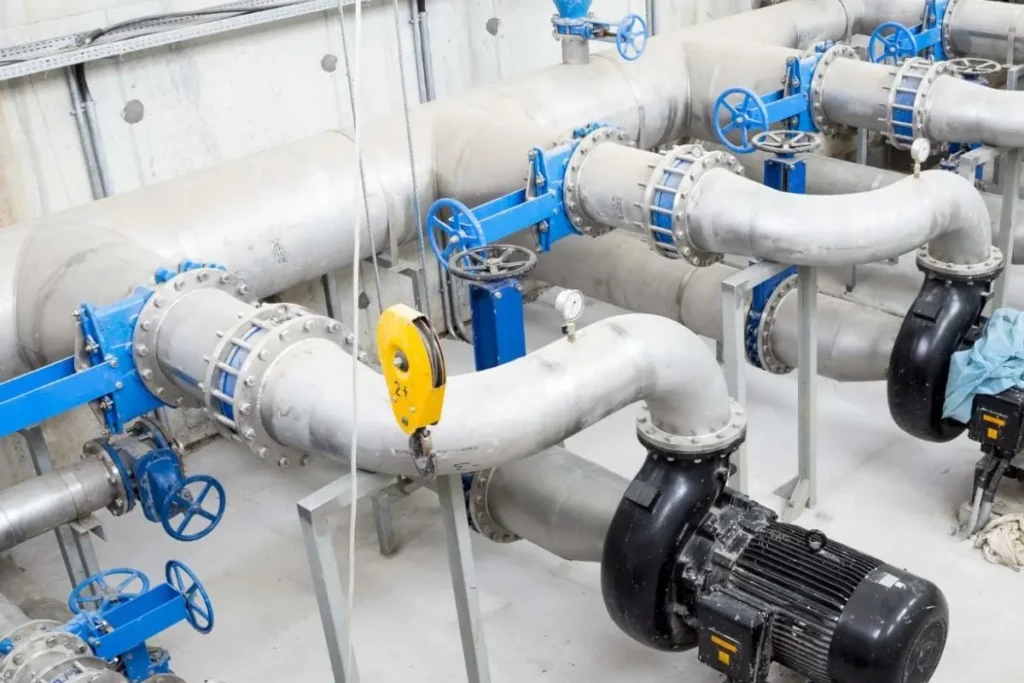Wastewater treatment plants are pivotal in maintaining the health of our environment by effectively purifying water before it’s returned to natural water bodies like seas or rivers. The primary goal of these water treatment plants is to make the water more potable so that it does not harm marine life.
To achieve this, a sophisticated network of equipment and processes work seamlessly to clean the wastewater. In this article, we’ll delve into one of the core components of wastewater treatment operations, valves, exploring the essential types of valves that are integral to the functioning of these plants.
Role of Valves in Wastewater Treatment
Wastewater treatment plants apply a combination of biological, chemical and physical processes to remove the harmful substances in the wastewater, providing a more controlled flow for efficient operations. Here are some key roles that valves perform in a wastewater treatment plant:
- Flow Regulation
Valves ensure the right amount of wastewater enters different treatment units with appropriate flow rates. This optimises plant efficiency and prevents overload. - Sludge Handling
Wastewater treatment plants deal with vast amounts of sludge during processing. This sludge requires careful management to prevent any damage to the component. Valves control the movement of sludge through thickening, dewatering, and disposal processes, ensuring efficient handling and minimising environmental impact. - Mixing and Diversion
Processes like mixing chemicals or diverting flows for equalisation require measured adjustments in the flow direction. Valves enable operators to redirect wastewater streams to achieve the desired treatment outcomes. - Pressure Control
Controlling pressure is paramount in most chemical processes to achieve the desired outcome. Valves help attain the desired pressure levels and optimise chemical and physical processes.
Besides the above roles, valves are also used for backflow prevention, emergency shutdown, aeration and monitoring.
Types of Valves Used in Wastewater Treatment Plants
Some of the most commonly used valves in wastewater treatment plants are:
Gate Valves
The primary application of a gate valve in a wastewater treatment plant is to either isolate or allow fluid flow in the required direction. They are used to direct the passage of wastewater through pipelines, channels, and various treatment units. Gate valves are suitable for applications that require fully open or fully closed positions, making them ideal for tasks such as shutting off flow during maintenance, repairs, or emergencies.
Ball Valves
Ball valves are used to control the flow of fluids due to their efficient quarter-turn operation. They are named for the spherical ball-shaped closure member inside the valve that controls the flow by its rotation. The ball has a hole (bore) through its centre, which can be aligned with the flow path to allow fluid to pass through or rotated to block the flow.
Butterfly Valves
A butterfly valve also uses a quarter-turn mechanism for opening and closing. The valve has a disc inside the valve which is connected to the handle used for opening and closing. There are three main categories of butterfly valves commonly known as double eccentric, triple eccentric, and concentric.
Check Valves
The primary purpose of using check valves in a wastewater treatment plant is to ensure liquid flow in one direction. Check valves immediately isolate the system to prevent flow reversal.
Level Control Valves
Level control valves are specialised automatic control valves used to maintain a consistent liquid level within tanks, vessels, and process systems. They adjust the flow of inlet or outlet fluids to ensure that the liquid level remains within a desired range, preventing overflow or underflow situations.
Choose the Right Valves for Your Wastewater Management Needs
Valves play a vital role in maximising the operational efficiency of wastewater treatment plants. These valves ensure that all processes, like mixing, chemical treatment, and aeration, take place in favourable conditions with improved resource utilisation. At John Valves, we offer a wide range of high-quality valves for different industrial applications. Whether you’re looking to improve productivity or enhance work safety, we can help you choose the right valve for your industry. Talk to our experts today.

